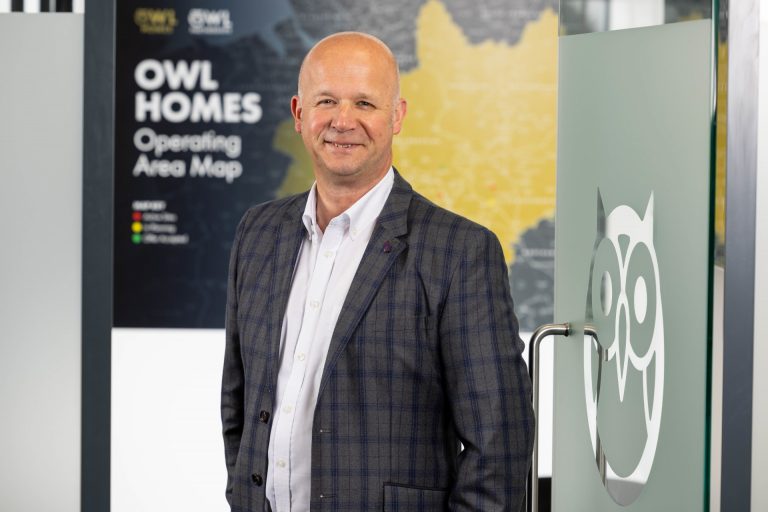CGI and University of Leicester open Innovation Lab with global vision for sustainability
Specialist database, cloud and applications managed service provider DSP acquires Canadian firm
Forterra to mothball further brick factory due to market weakness
Burton business expands with new warehouse unit
Lincolnshire sole trader fined following workers’ exposure to hazardous substance
A Lincolnshire-based sole trader has been fined after his employees were exposed to a hazardous substance.
The Health and Safety Executive (HSE) prosecuted Chris Buckley, trading as The Furniture Chest, after the workplace regulator inspected the firm’s site on Station Road, Heckington, Lincolnshire, on 7 April 2022.
HSE inspectors found a significant build-up of wood dust and that Local Exhaust Ventilation systems, provided to capture wood dust and protect employees, had not been thoroughly examined and tested.
A subsequent HSE investigation found Chris Buckley had failed to prevent or adequately control employees’ exposure to wood dust and had failed to ensure that Local Exhaust Ventilation systems had been thoroughly examined and tested. Improvement Notices had been served in relation to the control of wood dust at previous inspections.
Wood dust is a hazardous substance and exposure can lead to workers suffering from respiratory diseases such as asthma and sino-nasal cancer.
Chris Buckley of Heckington, Sleaford, Lincolnshire, pleaded guilty to breaching Regulations 7(1) and 9(2) of the Control of Substances Hazardous to Health Regulations 2002. He was fined £1,354 and ordered to pay costs of £3,578 at Boston Magistrates’ Court on 9 October 2023.
HSE inspector Muir Finlay said: “Chris Buckley could have ensured that his Local Exhaust Ventilation systems were thoroughly examined and tested to ensure that they were working to protect the health of employees. A suitable and sufficient cleaning regime could have been implemented to further reduce the build-up of dust.
“HSE recognises wood dust can cause serious health problems and launched its Dust Kills campaign to help businesses to take action now to protect their workers’ respiratory health.”
This HSE prosecution was supported by HSE enforcement lawyer Rebecca Schwartz.
Number of permanent jobs on offer across the Midlands continues to fall
The latest KPMG and REC, UK Report on Jobs survey, compiled by S&P Global showed a mixed picture for recruitment activity in the Midlands at the end of the third quarter of 2023.
Firms signalled a sustained and sharp reduction in permanent placements, while temporary billings rose at a stronger rate than that seen in August. Firms highlighted that widespread reports of recruitment freezes and a lack of suitably skilled candidates weighed on permanent hiring, and pushed firms to take on temporary staff in the meantime.
Recruitment firms also signalled a softer improvement in candidate supply for both permanent and temporary roles during September, with the respective growth rates easing to three- and four-month lows. However, competition for scarce workers contributed to sustained upturns in starting pay. That said, growth in demand for staff eased in the latest survey period, notably for permanent staff where vacancies broadly stagnated.
The KPMG and REC, UK Report on Jobs: Midlands is compiled by S&P Global from responses to questionnaires sent to around 100 recruitment and employment consultancies in the Midlands.
Sharp decline in permanent staff appointments
The number of people placed into permanent roles across the Midlands fell for the tenth consecutive month in September. The rate of contraction eased from that seen in August, though remained sharp overall. Where a decrease was reported, recruiters attributed this to hiring freezes and difficulty sourcing suitable candidates.
The reduction in the Midlands was the second-softest of the monitored English regions, behind London.
For the fourth time in as many months, billings received for temporary work in the Midlands increased in September. The expansion quickened from the previous survey period and was moderate overall. Anecdotal evidence suggested that some firms had opted to take on temporary staff amid the lack of available permanent workers. Only recruiters based in London recorded a stronger increase in temp billings than the Midlands.
Demand for permanent staff broadly stagnated at the end of the third quarter. The rate of vacancy growth was the weakest in the current 32-month sequence, though contrasted with a renewed decline at the national level.
Temporary job openings meanwhile expanded at a moderate pace during September, though growth softened from August to the softest since January 2021. The upturn in the Midlands was the second-strongest of the four English regions, behind the North of England.
Permanent staff supply rises at slower rate
The seasonally adjusted Permanent Staff Availability Index signalled a sixth successive monthly rise in permanent candidate numbers in the Midlands in September. The rate of increase slowed from August and was the softest recorded since June. Recruiters often noted that more candidates were available due to previous redundancies. The rise in staff supply was broadly similar to that at the national level.
Recruitment consultancies based in the Midlands signalled a fifth increase in temp candidate supply in as many months in September. The rise was only modest however and the softest recorded since May. There were reports that some candidates were willing to take on temp roles amid difficulty finding permanent positions. The rate of increase in the Midlands was the softest across the four monitored English regions, however.
Starting salary inflation eases to three-month low
Average salaries awarded to new permanent joiners in the Midlands increased further in September, thereby stretching the current sequence of rising pay to 31 months. The rate of growth was sharp, yet slowed to the softest since June. According to panellists, starting salaries had increased amid difficulty sourcing suitably skilled staff.
Recruiters in the Midlands signalled the second-softest rate of salary inflation, ahead of the South of England.
Average hourly pay for short-term staff in the Midlands rose for the thirty-fourth month in a row during September. The rate of growth slowed from that seen in August, though was stronger than the national average.
Where higher rates of temp pay were registered, recruiters often attributed this to competition for candidates as well as some instances of short-term staff demanding higher rates.
Commenting on the latest survey results, Kate Holt, people consulting partner for KPMG in the Midlands said: “We have seen another mixed bag when it comes to recruitment across the Midlands during the third quarter of 2023.
“Latest figures show a continued decline in permanent placements, due to a lack of skilled candidates and a rise in recruitment freezes, which has resulted in an ongoing spike in temporary hires.
“However, figures show that a trend for rising starting salaries has been maintained, continuing a pattern seen for the past 31 months in a row.”
Neil Carberry, REC Chief Executive, said: “Employers tell us they are feeling better about themselves as the year moves on, and today’s data does suggest the possibility of a turnaround in hiring over the next few months. Permanent placements have been falling for most of the past year now from abnormal post-pandemic highs.
“While permanent hiring activity continues to slow, the rate of contraction eased from that seen in August. Likewise, temporary hiring remains robust with billings growing in September, with billings up for the fourth time in as many months.
“This feels like a market that is finding the bottom of a year-long slowdown. And the relative buoyancy of the private sector is likely to be driving this more positive outlook. Some sectors such as accounting/financial, blue collar, engineering and healthcare continue to experience very strong demand. Along with high inflation, this is likely to be contributing to the growth of pay for temps and perms alike.
“As we move towards the Autumn Statement, action to help people find high quality roles is essential as the picture varies so widely from sector to sector. The REC would like to see a focus on skills, finally reforming the system to deliver a mix of high-quality courses within the levy framework, and action to tackle inactivity – like extending the Restart programme which has helped recruiters place thousands of long-term unemployed people into work.
“Both of these could form part of a long-overdue people and growth strategy. From reforming Government procurement to better and more effective regulation, there is a lot government could do in partnership with recruiters to drive growth and prosperity.”
Owl gets green light for new Derbyshire homes
The inflationary challenges of managing a business: by James Pinchbeck, partner at Streets Chartered Accountants
Babbl Marketing and Glowfrog Video Production join forces
 Matt Middleton, Director at Glowfrog Video Production, also shared his thoughts on this exciting partnership: “While video production is very much our expertise, we recognise that businesses need more than just great videos. They require a holistic marketing strategy that combines the strengths of video with other marketing channels.
“We are often asked whether we can provide additional marketing services beyond video production, so we wanted to form a relationship with a high-class marketing company like Babbl, to expand our offering to clients. We can work with Babbl to deliver exceptional marketing results for businesses across the East Midlands.”
Are you ready to elevate your marketing strategy to new heights?
We invite you to get in touch with Babbl Marketing today. Whether you’re a small startup or an established enterprise, they have the expertise to tailor a marketing strategy that aligns with your goals, and now, they can seamlessly incorporate the power of video into that strategy.
Don’t miss out on this opportunity to take your business to the next level with the combined expertise of Babbl Marketing and Glowfrog Video Production. Together, they are your partners in marketing success.
Matt Middleton, Director at Glowfrog Video Production, also shared his thoughts on this exciting partnership: “While video production is very much our expertise, we recognise that businesses need more than just great videos. They require a holistic marketing strategy that combines the strengths of video with other marketing channels.
“We are often asked whether we can provide additional marketing services beyond video production, so we wanted to form a relationship with a high-class marketing company like Babbl, to expand our offering to clients. We can work with Babbl to deliver exceptional marketing results for businesses across the East Midlands.”
Are you ready to elevate your marketing strategy to new heights?
We invite you to get in touch with Babbl Marketing today. Whether you’re a small startup or an established enterprise, they have the expertise to tailor a marketing strategy that aligns with your goals, and now, they can seamlessly incorporate the power of video into that strategy.
Don’t miss out on this opportunity to take your business to the next level with the combined expertise of Babbl Marketing and Glowfrog Video Production. Together, they are your partners in marketing success.












